Senturk Lab. on Functional Cancer Genomics
OVERVIEW
Molecular carcinogenesis studies aim to dissect the molecular aspects of cancer initiation and progression and use this information to develop more effective treatments and prevention strategies. Today, molecular mechanisms associated with different cancers are partly being deciphered by functional genomics strategies, leading to translational research-supported novel discoveries of potential therapeutic stratifications designed to counteract or actually reverse such mechanisms. As a molecular carcinogenesis and functional genomics laboratory, we adapt traditional molecular cancer biology and classical biochemical approaches to next generation technologies (e.g. genome engineering and high-throughput functional screening platforms) and aim to implement an ideal research environment for identification and development of targeted cancer therapies. Our ambition is to advance knowledge on carcinogenesis mechanisms and explore drug targets for cancer.
RESEARCH INTERESTS
Overall goal is to pursue a research program that utilizes functional genomics approaches and state-of-the-art tools for the understanding and the unraveling of cellular and molecular underpinnings of carcinogenesis and develops effective strategies for the discovery of cancer vulnerabilities, and hence potential future cancer drug targets. In this context, we are interested in the following research themes: (i) understanding why and how non-small cell lung cancer (NSCLC) cells become resistant to targeted therapies, (ii) mapping out cancer cell essential genes and dependencies across cancer types using functional genomics screens, (iii) understanding and mining of the molecular mechanisms of cancer cell senescence and identifying novel druggable cellular targets in senescence-resistance.
In order to do so, our lab is adopting the most comprehensive tools and relevant models for the examination of biological pathways and disease pathobiology.
- Cancer cell plasticity driven by Transforming Growth Factor Beta (TGF-β)-induced Epithelial-Mesenchymal Transition (EMT) reprogramming is a fundamental cell fate determination event in acquired drug resistance to EGFR-Tyrosine Kinase Inhibitors (EGFR-TKi) in NSCLC. Notably, our preliminary studies pointed out that EGFR-TKi resistant cells have a unique EMT-associated secretome which modulates complex and dynamic signaling networks and can be recapitulated by TGF-β treatment. In particular, we showed that autocrine loops between TNF- and TGF-β pathways play a key role in driving the resistance. Within the scope of this research theme, we are harnessing next generation genomic tools and various cellular models to define the molecular aspects of resistance to novel EGFR-TKi, in particular we are focusing on the identification and characterization of signaling factors by which the complex and multifaceted EMT program facilitates cellular communication and governs cell fate decisions in acquired resistance. We hope that our studies will further expand our understanding on the complex network of intracellular effectors and TGF-β pathway dynamics that correspond to drug resistance phenotypes in NSCLC.
- Future drug targets are expected to emerge from high-throughput functional genomics screening technologies supported by genome engineering approaches and bioinformatics tools that identify the mechanisms regulating biological processes. Functional studies aimed at defining cancer drug targets are driven by the premise that genetic and/or non-genetic alterations modify the dependencies of cancer cells, making them highly vulnerable to the loss of driving alterations and to addictions that the cancer cell state achieves. Therefore, systematic interrogation of the functional basis of cancer by determining genes essential for growth and related phenotypes in different cancer cells is central to this research theme. Recent advancements in functional genomics screening platforms allow us to designate gene essentiality and dependency and characterize cancer vulnerabilities. Our lab is utilizing CRISPR-Cas9 technology to uncover cancer cell essential genes and delineate vulnerabilities in in vitro cellular models of bladder cancer and malignant pleural mesothelioma. Here, we are performing pooled screens using genome-wide lentivirus-based screening libraries for sgRNA delivery and Cas9 expression.
- Previously, we showed that TGF-β pathway could provoke senescence in various in vitro and in vivo cellular models of early stage hepatocellular carcinoma (HCC) via induction of reactive oxygen species by Nox4, suggesting the potential use of pro-senescence therapies as tumor suppressive mechanisms to limit tumor growth and spreading. More importantly, we showed that cells normally undergoing TGF-β-induced senescence were able to generate resistant clones while still preserving an intact signaling state. These new findings allowed us to shed light on the mechanisms of intrinsic/acquired senescence-resistance in late stage HCCs. Currently, we are working to further define and characterize the molecular aspects of this resistance phenomenon using functional genomics approaches such as whole-genome transcriptomic analysis, RNAi and CRISPR-Cas9. Taken together, we strongly believe that such studies will help us uncover novel genes and pathways regulating cellular signaling mechanisms driving senescence-resistance in HCC.
RESEARCH HIGHLIGHTS
We undertake a wide range of research efforts focused on the following major areas of investigation: (1) identification and characterization of the mechanisms driving cancer; (2) druggable target identification and validation against such mechanisms. The close proximity to basic and translational research for interdisciplinary collaboration is invaluable in the selection and validation of novel cancer drug discovery targets. Our lab is at the center of characterization of cancer-specific vulnerabilities using high-throughput data combined with information on genomic abnormalities in order to increase research opportunities and support improved treatment of such diseases.
Group Members
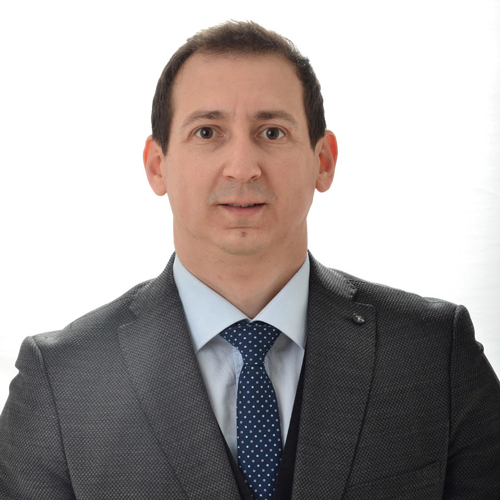
Senturk Lab. on Functional Cancer Genomics
Research Group Leader
Şerif ŞENTÜRK
serif.senturk@ibg.edu.tr
+90 232 299 41 00
(5111)
+9
0 232 299 41 61
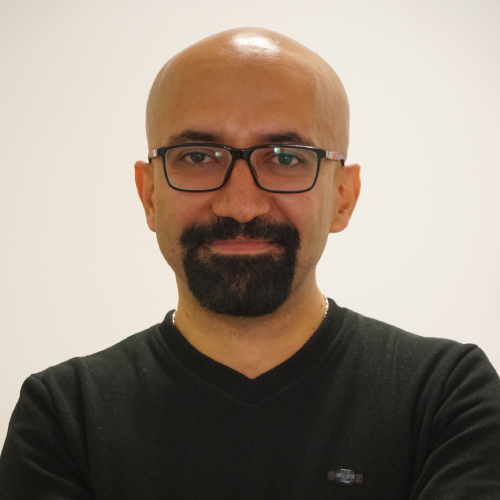
Mahdi SHEKARI
PhD Student
mahdi.shekari@ibg.edu.tr

Minenur ÖZTÜRK
Researcher
minenur.kalyoncu@ibg.edu.tr

Huriye ERBAK YILMAZ
PhD Student
huriye.erbak@ibg.edu.tr

Buse AKDEMİR
MSc Student
buse.akdemir@ibg.edu.tr

Ayşenaz AKKAYA
PhD Student
aysenaz.akkaya@ibg.edu.tr

Nazife Ege GÜLFIRAT
MSc Student
ege.gulfirat@ibg.edu.tr

Ebru KIRMIZIAY
MSc Student
ebru.kirmiziay@ibg.edu.tr

Özden ÖZ
PhD Student
ozden.oz@ibg.edu.tr
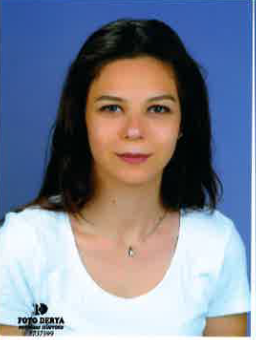
Serra ŞENER
PhD Student
serra.sener@std.ibg.edu.tr

Nazlıcan KAYGUSUZ
PhD Student
nazlican.kaygusuz@std.ibg.edu.tr

Ece ÇAKIROĞLU
Researcher
ece.cakiroglu@ibg.edu.tr
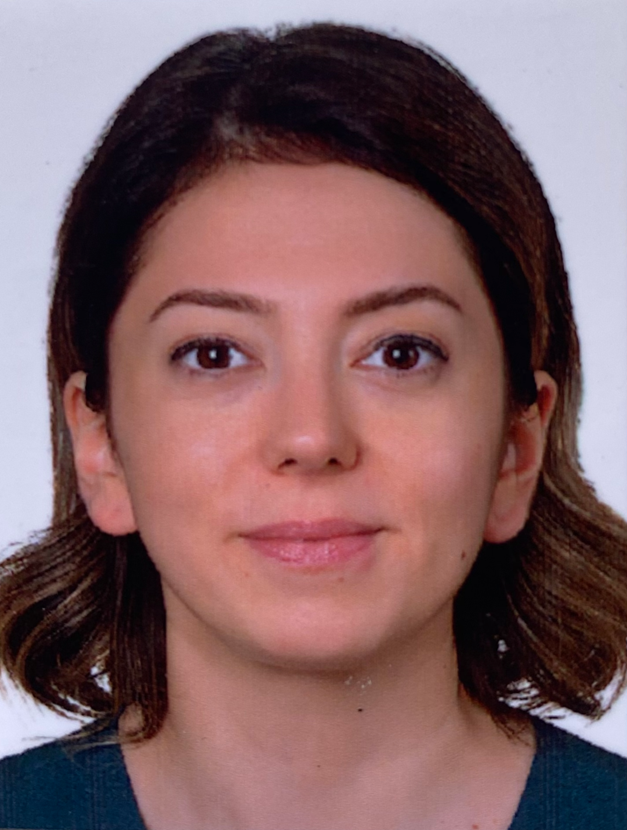
Deniz ONAN
Visiting Researcher
None

Sude ERİŞ
PhD Student
sude.eris@ibg.edu.tr

Beyza HABACI
Undergraduate Student
beyza.habaci@std.ibg.edu.tr

Tunç ÜNAL
MSc Student
tunc.unal@std.ibg.edu.tr
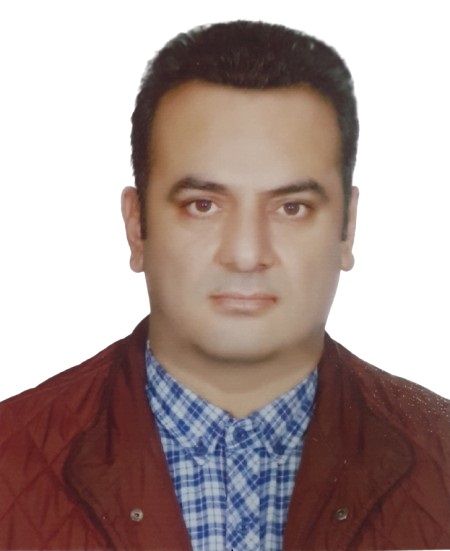
Fazel GORJIPOUR
Researcher
fazel.gorjipour@ibg.edu.tr
Former Members

Bengisu ULUATA DAYANÇ
PhD Student
bengisu.dayanc@ibg.edu.tr

Fatma Aybüke MAZI
MSc Student
fatmaaybuke.mazi@ibg.edu.tr
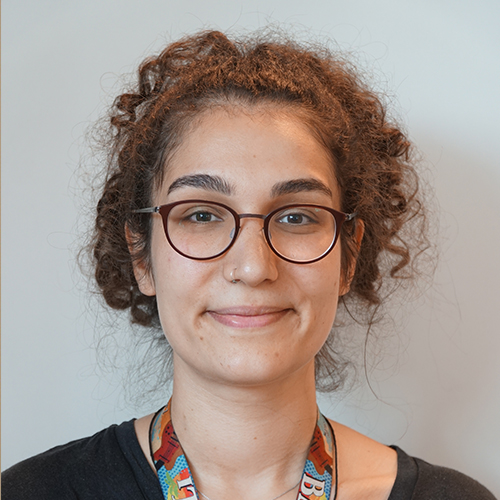
Özlem Şilan COŞKUN
PhD Student
silan.coskun@msfr.ibg.edu.tr

Ece ÇAKIROĞLU
PhD Student
ece.cakiroglu@ibg.edu.tr

Dilara DEMİRCİ
Researcher
dilara.demirci@ibg.edu.tr

Aslı KURDEN PEKMEZCİ
PhD Student
asli.kurden@ibg.edu.tr

Zehra Zeynep KAPLAN
Undergraduate Student
zehrazeynep.kaplan@msfr.ibg.edu.tr

Zeynep GÜNGÖR
MSc Student
zeynep.gungor@ibg.edu.tr

Merve UYSAL
MSc Student
merve.uysal@ibg.edu.tr

Hale GÜLER
Visiting Researcher
hale.guler@msfr.ibg.edu.tr

Sude ERİŞ
Undergraduate Student
sude.eris@ibg.edu.tr

Aybike ERDOĞAN
PhD Student
aybike.erdogan@ibg.edu.tr

Sude ERİŞ
MSc Student
sude.eris@ibg.edu.tr
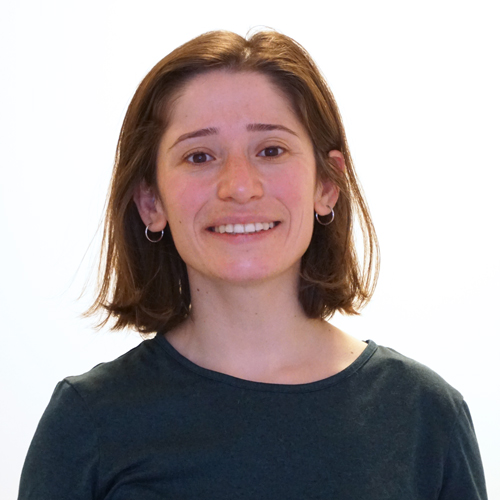
Filiz BAŞER
Visiting Researcher
filiz.baser@ibg.edu.tr

Gamze ÇÖMLEKÇİ
Undergraduate Student
gamze.comlekci@ibg.edu.tr
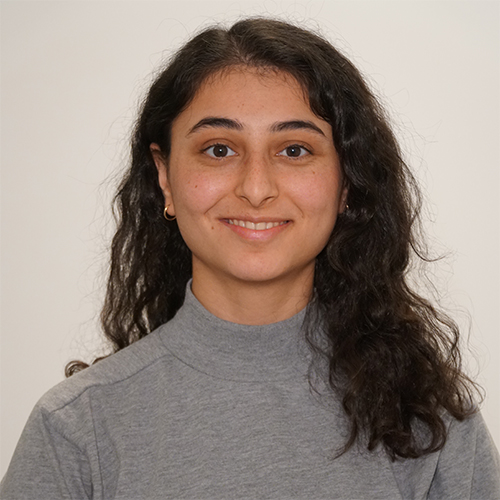
Eda ŞAMİLOĞLU TENGİRŞEK
Visiting Student
eda.samiloglu@ibg.edu.tr
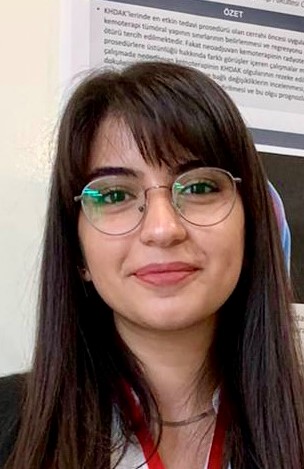
Nazlı ŞAHİN
Undergraduate Student
nazli.sahin@ibg.edu.tr

Buse AKDEMİR
Undergraduate Student
buse.akdemir@ibg.edu.tr

Sude ERİŞ
MSc Student
sude.eris@ibg.edu.tr

Seda Nur HOMURLU
MSc Student
seda.homurlu@ibg.edu.tr

İpek KURT
Undergraduate Student
ipek.kurt@ibg.edu.tr

Ece ÇAKIROĞLU
Post-Doc Researcher
ece.cakiroglu@ibg.edu.tr

Nazife Ege GÜLFIRAT
MSc Student
ege.gulfirat@ibg.edu.tr
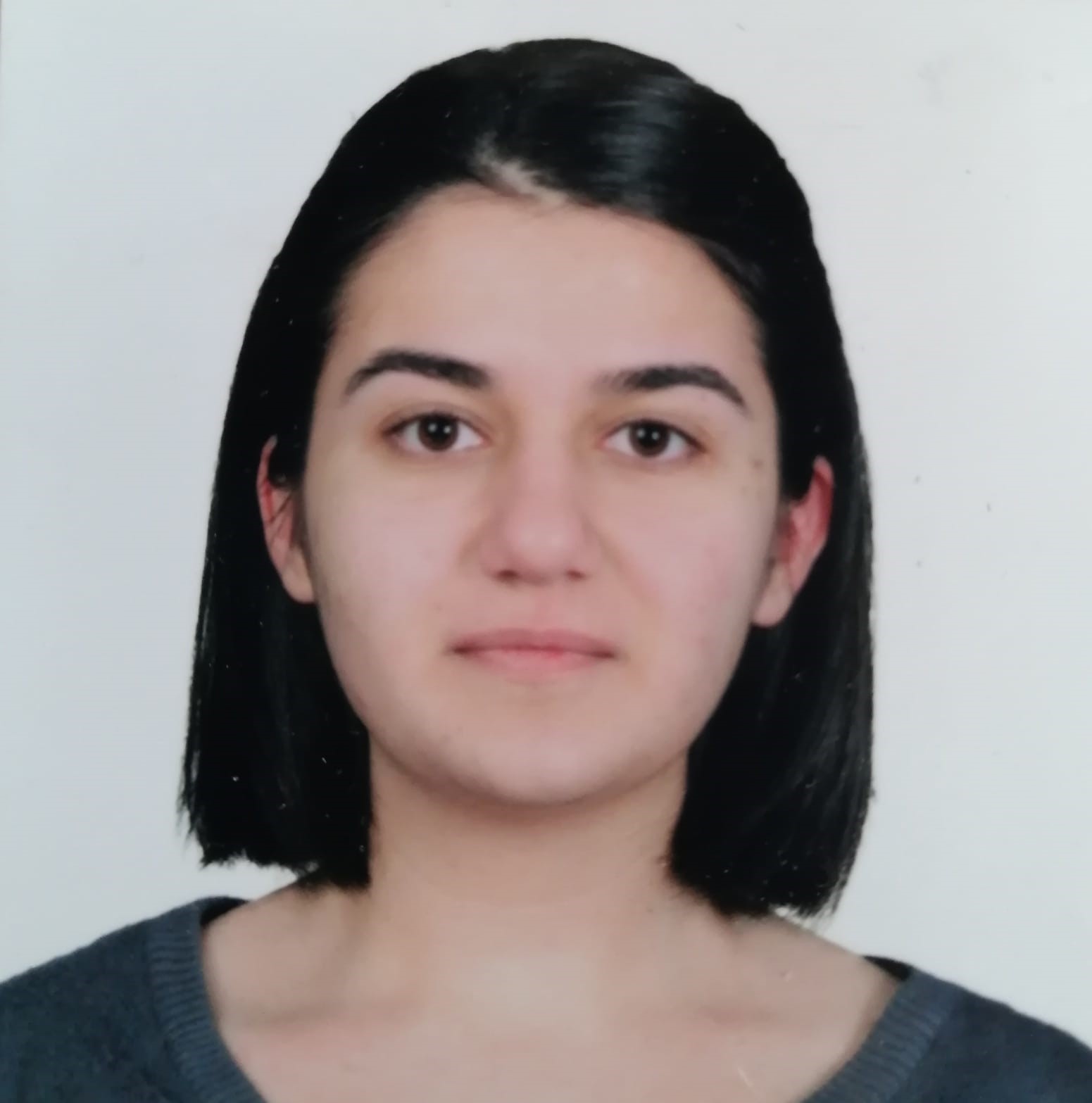
Dicle ÇALIŞKAN
Undergraduate Student
dicle.caliskan@ibg.edu.tr
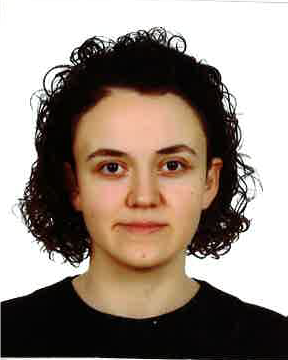
Nur BOZBEY
Visiting Researcher
nur.bozbey@ibg.edu.tr
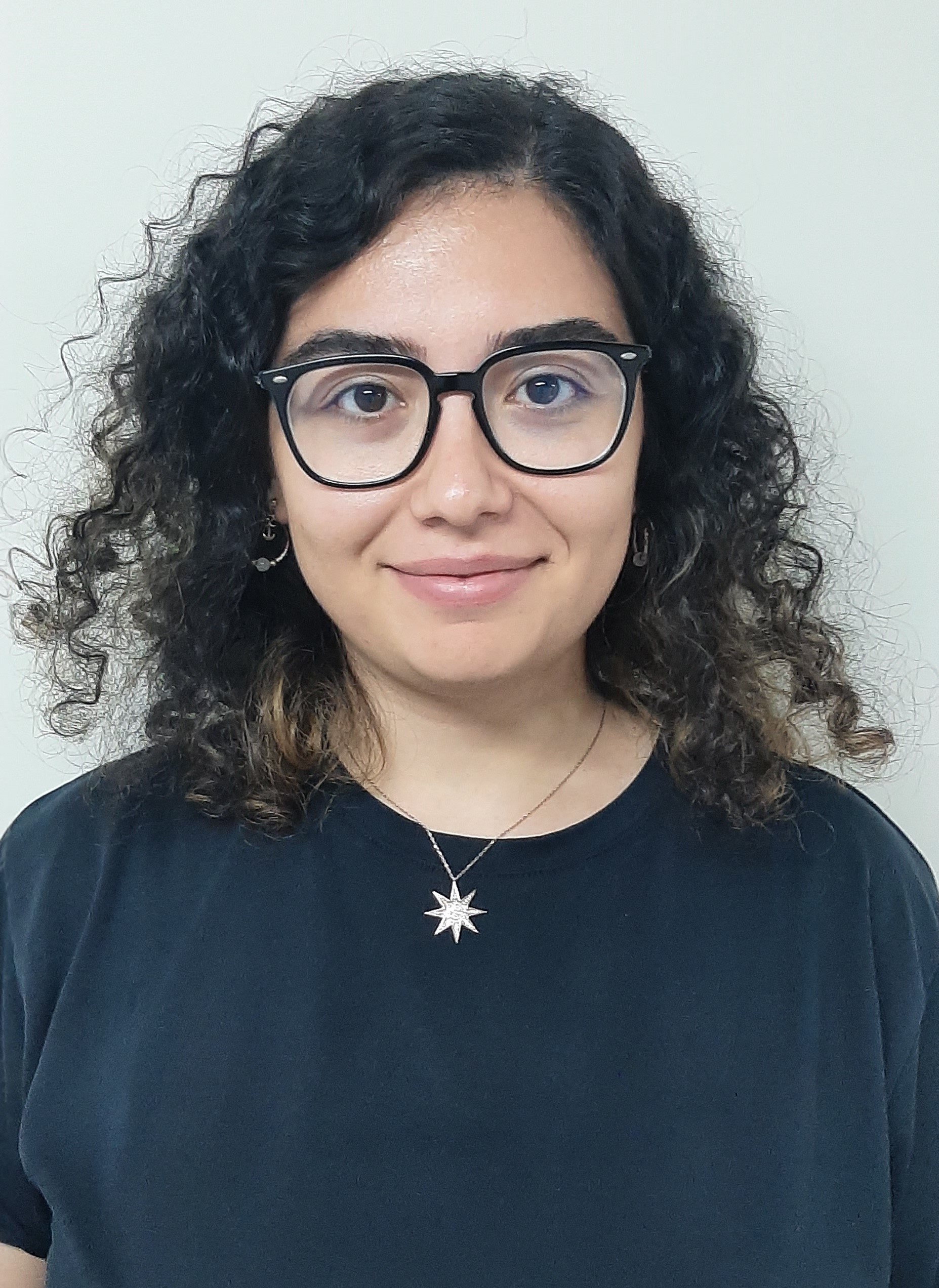
Saliha Büşra KURT
PhD Student
saliha.kurt@ibg.edu.tr
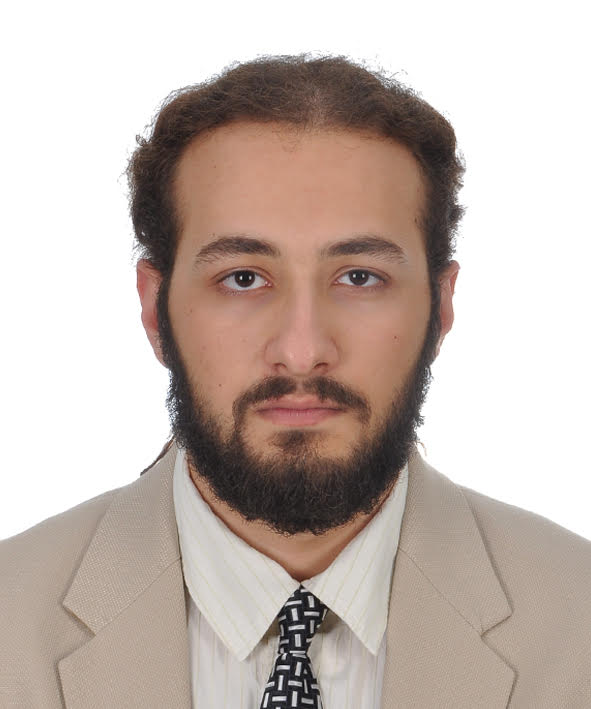
Deniz Ulaş ÖZTÜRK
Undergraduate Student
denizulas.ozturk@ibg.edu.tr

Melikşah DÜNDAR
Undergraduate Student
meliksah.dundar@std.ibg.edu.tr
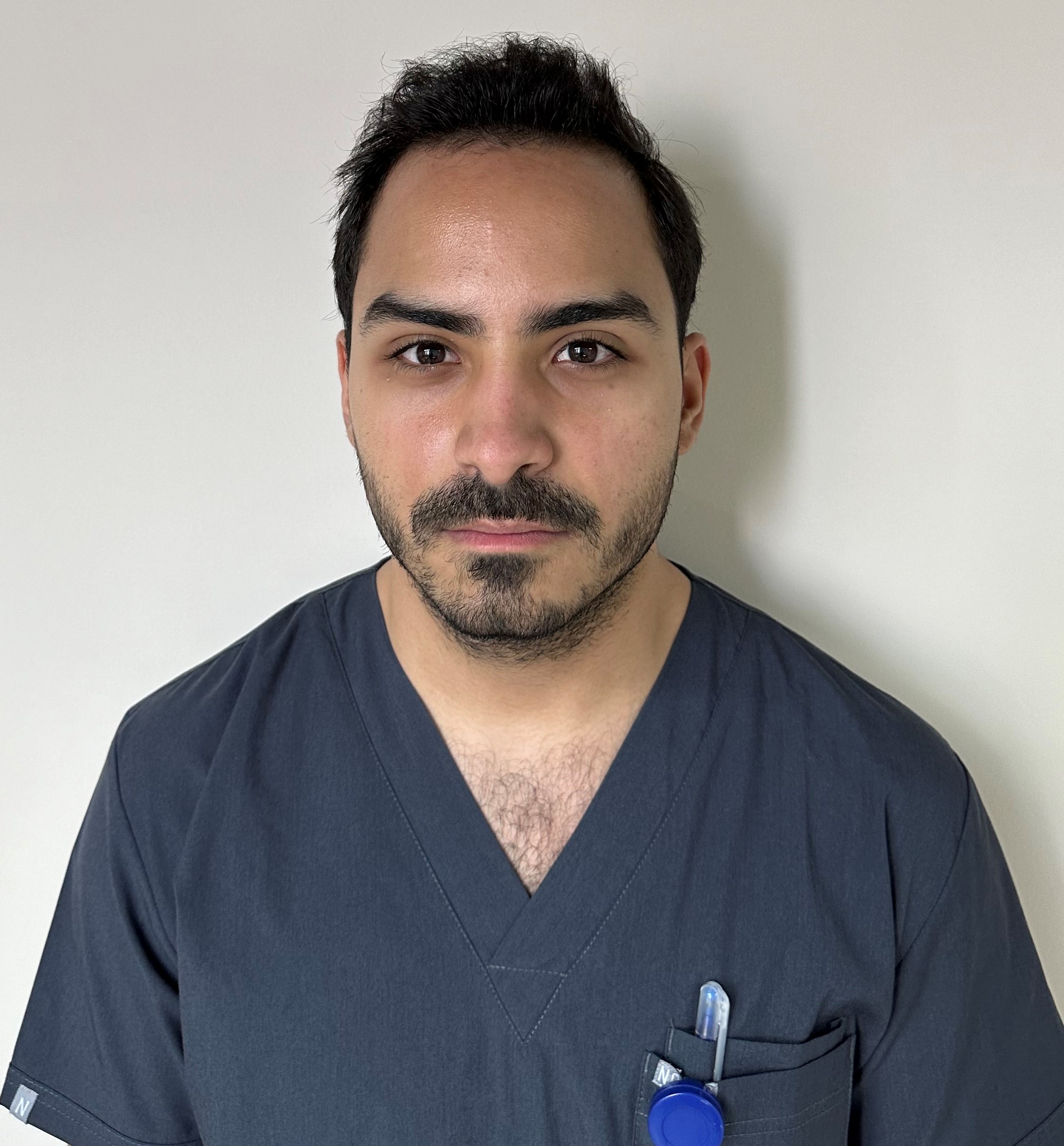
Barkın ALANSATAN
Undergraduate Student
barkin.alansatan@std.ibg.edu.tr
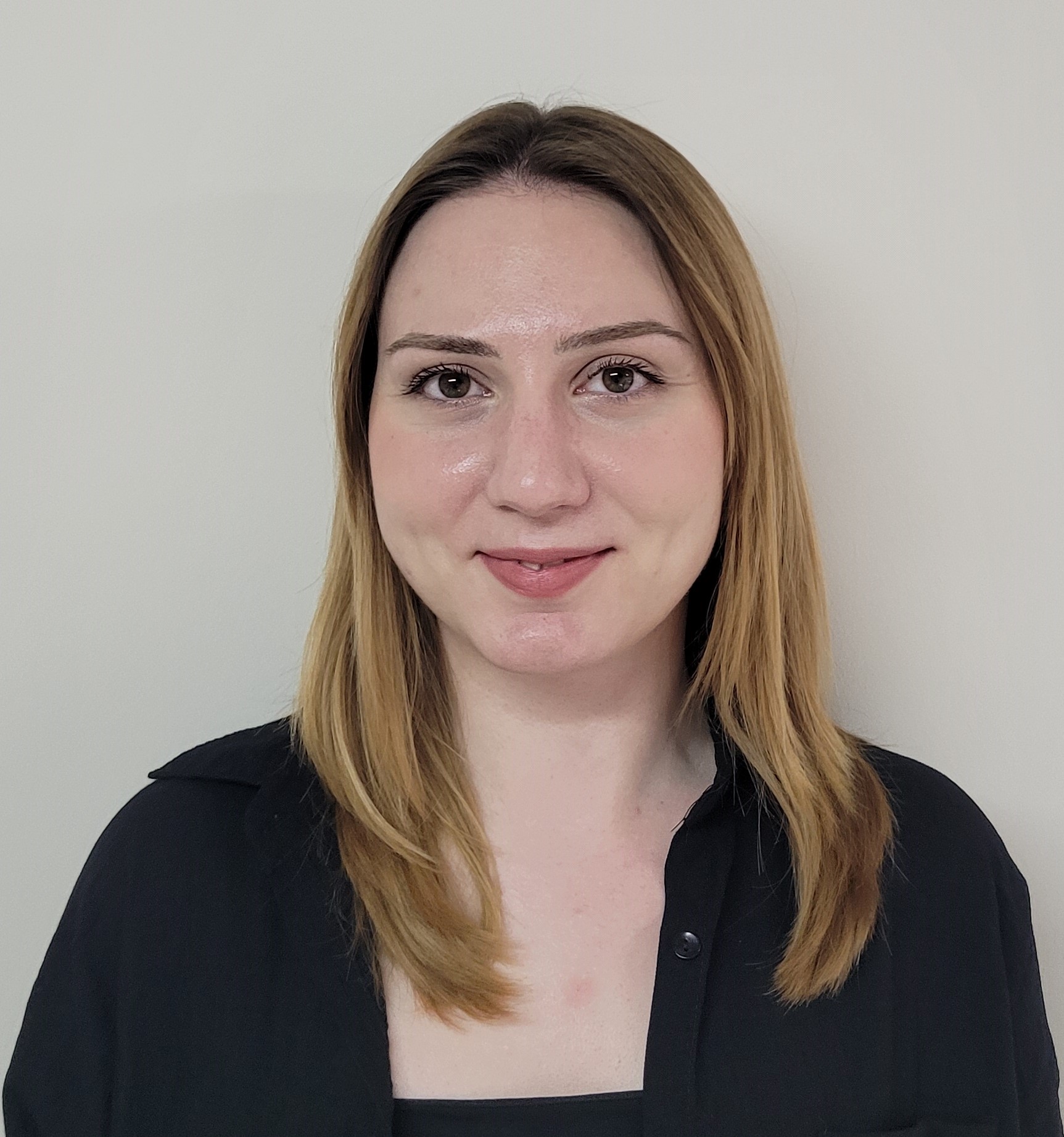
Sıla KÖPRÜLÜOĞLU
Undergraduate Student
sila.kopruluoglu@std.ibg.edu.tr
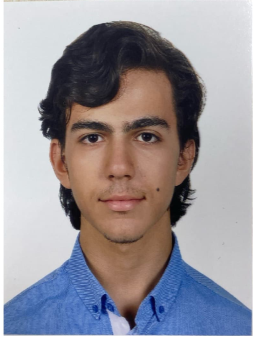
Ahmet Yılmaz ASİL
Undergraduate Student
ahmet.asil@std.ibg.edu.tr
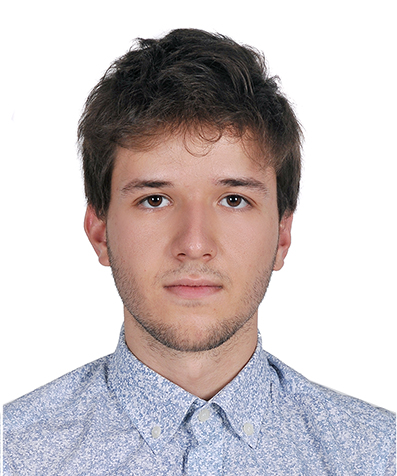
Esat GENÇTÜRK
Undergraduate Student
esat.gencturk@std.ibg.edu.tr

Ali Can KURTUL
Undergraduate Student
alican.kurtul@ibg.edu.tr
Selected Publications
Atalay EB, Senturk S, Kayali HA. Wild-type IDH1 Knockout Leads to G0/G1 Arrest, Impairs Cancer Cell Proliferation, Altering Glycolysis, and the TCA Cycle in Colon Cancer.. Biochemical genetics. 2023 January . doi:10.1007/s10528-022-10325-1. Download
Mazi FA, Cakiroglu E, Uysal M, Kalyoncu M, Demirci D, Sozeri PYG, Yilmaz GO, Ozhan SE, Senturk S. The paracaspase MALT1 is a downstream target of Smad3 and potentiates the crosstalk between TGF-β and NF-kB signaling pathways in cancer cells.. Cellular signalling. 2023 January ; 105 : 110611. doi:10.1016/j.cellsig.2023.110611. Download
Guneri-Sozeri PY, Özden-Yılmaz G, Kisim A, Cakiroglu E, Eray A, Uzuner H, Karakülah G, Pesen-Okvur D, Senturk S, Erkek-Ozhan S. FLI1 and FRA1 transcription factors drive the transcriptional regulatory networks characterizing muscle invasive bladder cancer.. Communications biology. 2023 February ; 6 (1) : 199. doi:10.1038/s42003-023-04561-3. Download
Özden-Yılmaz G, Savas B, Bursalı A, Eray A, Arıbaş A, Senturk S, Karaca E, Karakülah G, Erkek-Ozhan S. Differential Occupancy and Regulatory Interactions of KDM6A in Bladder Cell Lines.. Cells. 2023 March ; 12 (6) : 836. doi:10.3390/cells12060836. Download
Aslı Kurden Pekmezci, Ece Cakiroglu, Sude Eris, Fatma Aybuke Mazi, Ozlem Silan Coskun, Ertugrul Dalgic, Ozden Oz, Serif Senturk. MALT1 Paracaspase is Overexpressed in Hepatocellular Carcinoma and Promotes Cancer Cell Survival and Growth. Life Sciences. 2023 June ; 323 : 121690. doi:10.1016/j.lfs.2023.121690. Download
Medine Zeynep Gungor, Merve Uysal, Serif Senturk. The Bright and the Dark Side of TGF-β Signaling in Hepatocellular Carcinoma: Mechanisms, Dysregulation, and Therapeutic Implications. Cancers. 2022 February ; 14 (4) : 940. doi:10.3390/cancers14040940. Download
Yagmur Toktay, Bengisu Dayanc, Serif Senturk. Engineering and Validation of a Dual Luciferase Reporter System for Quantitative and Systematic Assessment of Regulatory Sequences in Chinese Hamster Ovary Cells. Scientific Reports. 2022 April ; 12 . doi:10.1038/s41598-022-09887-2. Download
Hale GÜLER KARA, Buket KOSOVA, Eda DOĞAN, Vildan BOZOK ÇETİNTAŞ, Şerif ŞENTÜRK. CRISPR-Cas Functional Genetic Screening: Traditional Review. Türkiye Klinikleri Tıp Bilimleri Dergisi. 2022 May . Download
Dilara Demirci, Bengisu Dayanc, Fatma Aybuke Mazi, Serif Senturk. The Jekyll and Hyde of Cellular Senescence in Cancer. Cells. 2021 January ; 10 (2) : 208. doi:10.3390/cells10020208. Download
Daniel J. Klionsky and Co-authors. Guidelines for the use and interpretation of assays for monitoring autophagy (4th edition). Autophagy. 2021 February ; 17 (1) : 1-382. doi:10.1080/15548627.2020.1797280. Download
Hasan Akbaba, Gülşah Erel-Akbaba, Serif Senturk. Recruitment of solid lipid nanoparticles for the delivery of CRISPR/Cas9: primary evaluation of anticancer gene editing. Nanomedicine. 2021 May ; 16 (12) : 963–978. doi:10.2217/nnm-2020-0412. Download
Polona Safaric Tepes, Debjani Pal, Trine Lindsted, Ingrid Ibarra, Amaja Lujambio, Vilma Jimenez Sabinina, Serif Senturk, Madison Miller, Navya Korimerla, Jiahao Huang, Larry Glassman, Paul Lee, David Zeltsman, Kevin Hyman, Michael Esposito, Gregory J. Hannon, Raffaella Sordella. An epigenetic switch regulates the ontogeny of AXL-positive/EGFR-TKI resistant cells by modulating miR-335 expression. eLife. 2021 July . doi:10.7554/eLife.66109. Download
Karabicici M, Azbazdar Y, Ozhan G, Senturk S, Firtina Karagonlar Z, Erdal E. Changes in Wnt and TGF-β Signaling Mediate the Development of Regorafenib Resistance in Hepatocellular Carcinoma Cell Line HuH7.. Frontiers in cell and developmental biology. 2021 August ; 9 : 639779. doi:10.3389/fcell.2021.639779. Download
Zeynep Güngör, Merve Uysal, Mehmet Öztürk, Şerif Şentürk. Systematic Analysis of Cytostatic TGF-Beta Response in Mesenchymal-Like Hepatocellular Carcinoma Cell Lines. Journal of Gastrointestinal Cancer. 2021 August . doi:10.1007/s12029-021-00704-z. Download
Tugce Batur, Ayse Argundogan, Umur Keles, Zeynep Mutlu, Hani Alotaibi, Serif Senturk, Mehmet Ozturk. AXL knock-out in SNU475 hepatocellular carcinoma cells provides evidence for lethal effect associated with G2 arrest and polyploidization. International Journal of Molecular Sciences. 2021 December ; 22 (24) : 13247. doi:10.3390/ijms222413247. Download
Ece Cakiroglu, Serif Senturk. Genomics and Functional Genomics of Malignant Pleural Mesothelioma. International Journal of Molecular Sciences. 2020 September ; 21 (17) : E6342. doi:10.3390/ijms21176342. Download
Ozgun G, Senturk S, Erkek-Ozhan S. Retinoic acid signaling and bladder cancer: Epigenetic deregulation, therapy and beyond.. International journal of cancer. 2020 October . doi:10.1002/ijc.33374. Download
Soheil Akbari, Nur Arslan, Şerif Şentürk, Esra Erdal. Next-Generation Liver Medicine Using Organoid Models. Frontiers in Cell and Developmental Biology-Stem Cell Research. 2019 December ; 7 : 345. doi:10.3389/fcell.2019.00345. Download
Aysim Gunes, Ezgi Bagirsakci, Evin Iscan, Gulcin Cakan-Akdogan, Umut Aykutlu, Serif Senturk, Gunes Ozhan, Esra Erdal, Deniz Nart, Funda Yilmaz Barbet, Nese Atabey. Thioredoxin interacting protein promotes invasion in hepatocellular carcinoma. Oncotarget. 2018 ; 9 (96) : 36849-36866. doi:10.18632/oncotarget.26402. Download
Senturk S, Shirole NH, Nowak DG, Corbo V, Pal D, Vaughan A, Tuveson DA, Trotman LC, Kinney JB, Sordella R. Rapid and tunable method to temporally control gene editing based on conditional Cas9 stabilization. Nature communications. 2017 February ; 8 : 14370. doi:10.1038/ncomms14370. Download
Shirole NH, Pal D, Kastenhuber ER, Senturk S, Boroda J, Pisterzi P, Miller M, Munoz G, Anderluh M, Ladanyi M, Lowe SW, Sordella R. Correction: TP53 exon-6 truncating mutations produce separation of function isoforms with pro-tumorigenic functions. eLife. 2017 February ; 6 . doi:10.7554/eLife.25532. Download
Shirole NH, Pal D, Kastenhuber ER, Senturk S, Boroda J, Pisterzi P, Miller M, Munoz G, Anderluh M, Ladanyi M, Lowe SW, Sordella R. TP53 exon-6 truncating mutations produce separation of function isoforms with pro-tumorigenic functions. eLife. 2016 October ; 5 : e17929. doi:10.7554/eLife.25532. Download
Shirole NH, Pal D, Kastenhuber ER, Senturk S, Boroda J, Pisterzi P, Miller M, Munoz G, Anderluh M, Ladanyi M, Lowe SW, Sordella R. TP53 exon-6 truncating mutations produce separation of function isoforms with pro-tumorigenic functions. eLife. 2016 October ; 5 . doi:10.7554/eLife.17929. Download
Nowak DG, Cho H, Herzka T, Watrud K, DeMarco DV, Wang VM, Senturk S, Fellmann C, Ding D, Beinortas T, Kleinman D, Chen M, Sordella R, Wilkinson JE, Castillo-Martin M, Cordon-Cardo C, Robinson BD, Trotman LC. MYC Drives Pten/Trp53-Deficient Proliferation and Metastasis due to IL6 Secretion and AKT Suppression via PHLPP2.. Cancer discovery. 2015 June ; 5 (6) : 636-51. doi:10.1158/2159-8290.CD-14-1113. Download
Senturk S, Yao Z, Camiolo M, Stiles B, Rathod T, Walsh AM, Nemajerova A, Lazzara MJ, Altorki NK, Krainer A, Moll UM, Lowe SW, Cartegni L, Sordella R. p53Ψ is a transcriptionally inactive p53 isoform able to reprogram cells toward a metastatic-like state.. Proceedings of the National Academy of Sciences of the United States of America. 2014 August ; 111 (32) : E3287-96. doi:10.1073/pnas.1321640111. Download
Mender I, Senturk S, Ozgunes N, Akcali KC, Kletsas D, Gryaznov S, Can A, Shay JW, Dikmen ZG. Imetelstat (a telomerase antagonist) exerts off‑target effects on the cytoskeleton.. International journal of oncology. 2013 May ; 42 (5) : 1709-15. doi:10.3892/ijo.2013.1865. Download
Sucularli C, Senturk S, Ozturk M, Konu O. Dose- and time-dependent expression patterns of zebrafish orthologs of selected E2F target genes in response to serum starvation/replenishment.. Molecular biology reports. 2011 August ; 38 (6) : 4111-23. doi:10.1007/s11033-010-0531-2. Download
Buontempo F, Ersahin T, Missiroli S, Senturk S, Etro D, Ozturk M, Capitani S, Cetin-Atalay R, Neri ML. Inhibition of Akt signaling in hepatoma cells induces apoptotic cell death independent of Akt activation status.. Investigational new drugs. 2011 December ; 29 (6) : 1303-13. doi:10.1007/s10637-010-9486-3. Download
Mumcuoglu M, Bagislar S, Yuzugullu H, Alotaibi H, Senturk S, Telkoparan P, Gur-Dedeoglu B, Cingoz B, Bozkurt B, Tazebay UH, Yulug IG, Akcali KC, Ozturk M. The ability to generate senescent progeny as a mechanism underlying breast cancer cell heterogeneity.. PloS one. 2010 June ; 5 (6) : e11288. doi:10.1371/journal.pone.0011288. Download
Senturk S, Mumcuoglu M, Gursoy-Yuzugullu O, Cingoz B, Akcali KC, Ozturk M. Transforming growth factor-beta induces senescence in hepatocellular carcinoma cells and inhibits tumor growth.. Hepatology (Baltimore, Md.). 2010 September ; 52 (3) : 966-74. doi:10.1002/hep.23769. Download
Yuzugullu H, Benhaj K, Ozturk N, Senturk S, Celik E, Toylu A, Tasdemir N, Yilmaz M, Erdal E, Akcali KC, Atabey N, Ozturk M. Canonical Wnt signaling is antagonized by noncanonical Wnt5a in hepatocellular carcinoma cells.. Molecular cancer. 2009 October ; 8 : 90. doi:10.1186/1476-4598-8-90. Download
Ozturk M, Arslan-Ergul A, Bagislar S, Senturk S, Yuzugullu H. Senescence and immortality in hepatocellular carcinoma.. Cancer letters. 2009 December ; 286 (1) : 103-13. doi:10.1016/j.canlet.2008.10.048. Download
Ozturk N, Erdal E, Mumcuoglu M, Akcali KC, Yalcin O, Senturk S, Arslan-Ergul A, Gur B, Yulug I, Cetin-Atalay R, Yakicier C, Yagci T, Tez M, Ozturk M. Reprogramming of replicative senescence in hepatocellular carcinoma-derived cells.. Proceedings of the National Academy of Sciences of the United States of America. 2006 February ; 103 (7) : 2178-83. doi:10.1073/pnas.0510877103. Download
Total : 33
Selected Book Chapters
Structure and Function of the H19 Long Non-coding RNA in Cancer (2023). Interdisciplinary Cancer Research. Springer.
Challenges in First-line Osimertinib therapy in EGFR-mutant non-small cell lung cancer: acquired resistance is the issue (2022). Interdisciplinary Cancer Research. Springer.
CRISPR/Cas9 Gene Editing in Mammalian Cells Using LentiCRISPRv2/LentiGuide-Puro Vectors (2021). CRISPR-Cas Methods. Springer Protocols.
Inducible CRISPR-based Genome Editing for the Characterization of Cancer Genes (2018). Genome Editing and Engineering: From TALENs, ZFNs and CRISPRs to Molecular Surgery. Cambridge University Press.
Total : 4
Patents
- Raffaella Sordella, Serif Senturk, Luca Cartegni, Zhan Yao 2019 , Methods and compositions for inhibiting growth and epithelial to mesenchymal transition (emt) in cancer cells, 10501741
Awards
- Young Scientist (BAGEP) Award by Science Academy, 2019
- Young Investigator (GEBİP) Awards by Turkish Academy of Sciences (TÜBA), 2017
Academic Memberships
- TÜBA-Turkish Academy Of Science, 2017
- The Science Academy, Turkey, 2019
- Turkish Society of Biochemistry, 2008
Contact

Senturk Lab. on Functional Cancer Genomics
Research Group Leader
Şerif ŞENTÜRK
serif.senturk@ibg.edu.tr
+90 232 299 41 00
(5111)
+9
0 232 299 41 61
